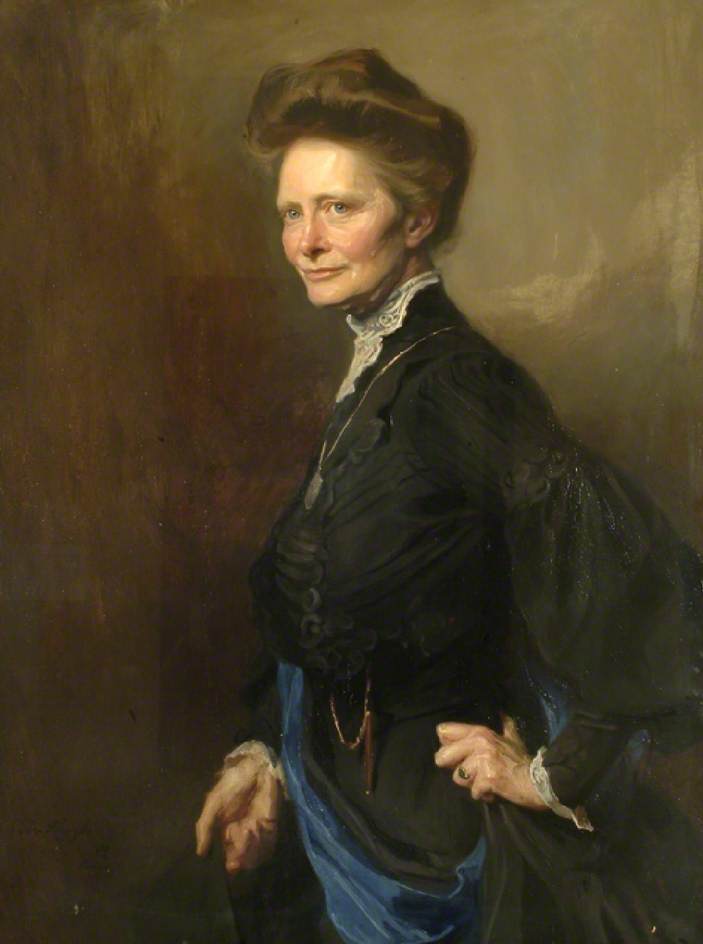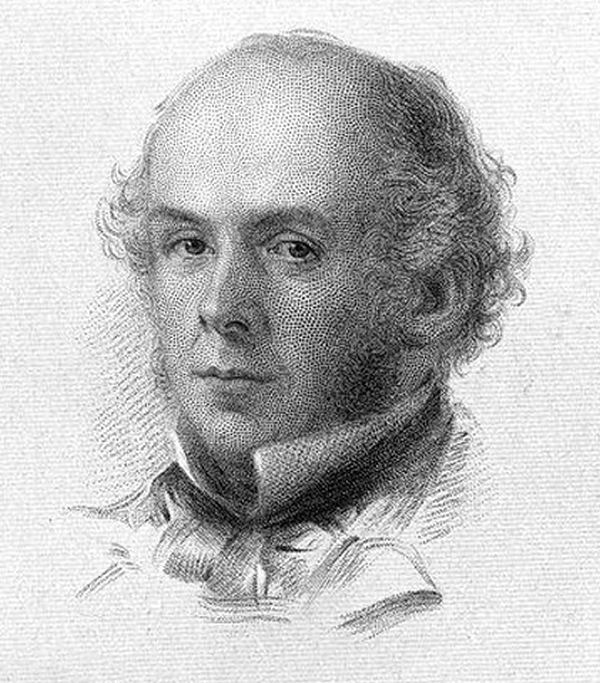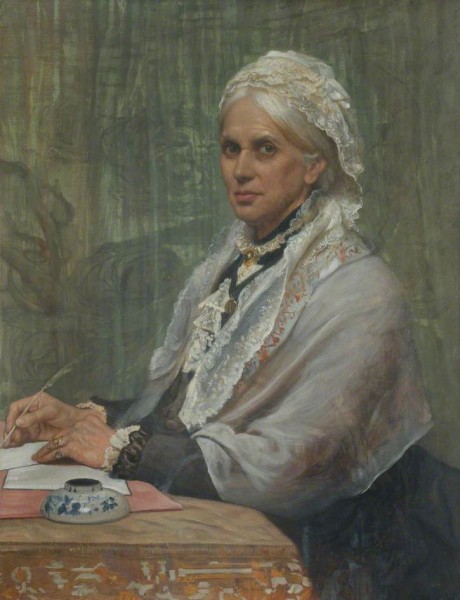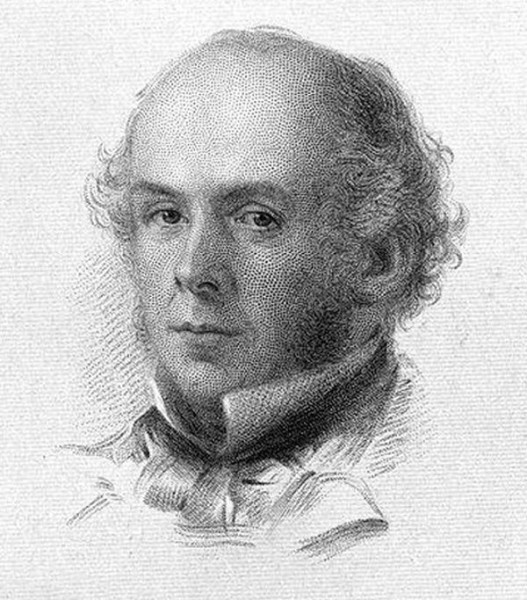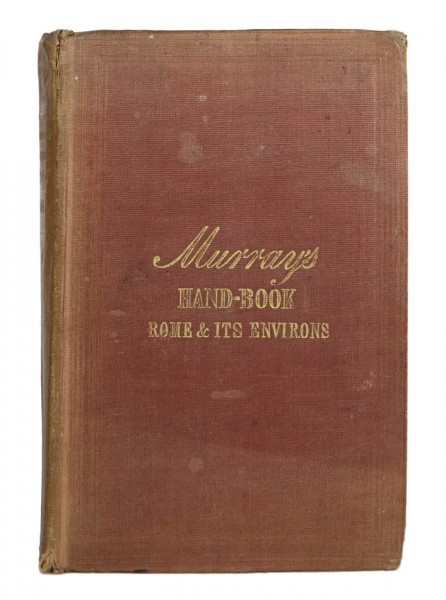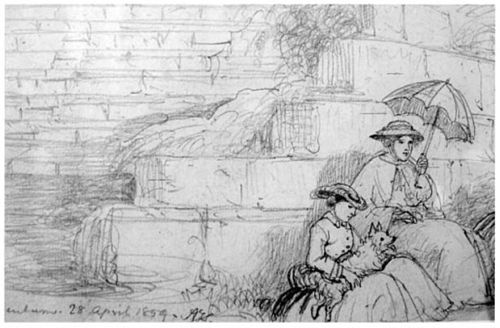In 1918 when Christine Trew (later Longford) went up to Oxford, the number of male undergraduates stood at barely a quarter of its pre-war level. Women, at last, found themselves welcomed by the University, their fees providing useful income and their presence ensuring a certain continuity in academic life. Somerville College (the novel’s Springfield) had been requisitioned as a Military Hospital for officers, its own students being housed for the duration at Oriel College, where they occupied the St Mary Hall quadrangle, easily separable from the rest of the college. It was reported at the time that the barrier erected was ‘the most forbidding venture-no-further kind of wall ever seen.’
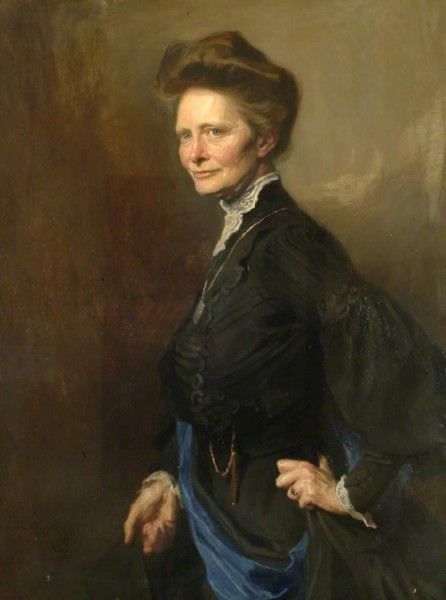
The Principal laid great store by proper social conduct, but though still nominally in place for social encounters, chaperone rules had been relaxed for lectures, hardly necessary in any case in the half-empty halls. In her, largely autobiographical, novel Christine’s delightfully blunt heroine, Martha Freke, laments of the men that ‘most of them looked very young and spotty, except one who had only one leg and two who were lame.’ My own (very) elderly Director of Studies at Newnham described to me the bleakness of the Cambridge benches at that time, where the few men were either very young, very old, congenitally unfit, or as the French describe them, mutilés de guerre. My DoS made no mention of fast-living gay dons, or dangerously attractive married Americans, who appear in Making Conversation.
The community of women, though physically undamaged, would have been more diverse than previously, or subsequently. Some like Christine (Martha) had transitioned seamlessly from school to Oxford. Some, like Winifred Holtby (The Crowded Street: Persephone Book No. 76)) had delayed going up because of the War, while others, like Vera Brittain, had taken time out in mid-degree to volunteer behind the lines. Holtby and Brittain would have joined Christine Trew at Somerville in 1919. Did they know each other? Might they have been friends? It’s hard to tell. Possibly not.
The War, which had affected the two older women so profoundly, is touched on only tangentially in Making Conversation: the shortage of coal, the lack of palatable food, the absence of presentable men impacting on Martha Freke’s fictional Oxford circle more than any personal loss. The cocoa-party companions are more ready to burst into girlish peals of laughter at the foibles of others, or their own trivial misadventures, than to engage in any serious discussion. They talk of hats, and frocks, and tea-sets. But though her friends chatter easily and endlessly amongst themselves, Martha has no ‘small talk’. Her statements are considered, and the questions of others answered as truthfully as she is able, even when the answer, as it often is, is “I don’t know”.
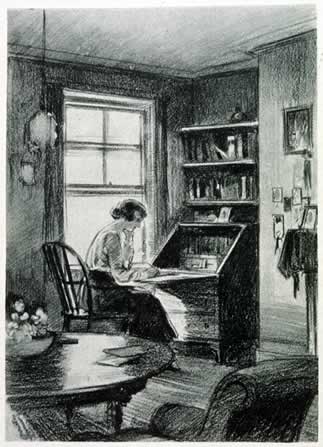
Freshers’ invitations to join societies with puzzling acronyms and the highest of moral pretensions confuse her. The Springfield College Christian Fellowship doesn’t believe in dogma and has ‘quite a little corner in agnostics’, the Society for Women’s Freedom is ‘mainly social’, the bafflingly named Guild of St Margaret offers something ‘more spiritual in tone’. To the blandishments of the SCCF, the SMF, the GSM: Martha replies fully, honestly and inappropriately. She’s ‘not sure of her position with regard to the Christian religion’; she agrees with Nietzsche that ‘man was made for war and woman for the enjoyment of the warrior’. Even to questions of love and sex her response is direct and literal, gloriously so: “I don’t want to be anyone’s mistress,” said Martha. I’m not fond enough of physical exercise.”
Her contemporaries exchange easy flirtatious banter with young men, sticking comfortably to the shallows, repeating ‘how topping’ at intervals, and smiling brightly, but she goes boldly and awkwardly in at the deep end. First enquiring of a brand new acquaintance his views on psychoanalysis, Martha initiates the only discussion about the War, which is both comic and tragic in its brevity
“Were you in the Army?” “Yes,” said Mr. Butts. “I was entirely against the war,” said Martha. “So was I,” said Mr Butts.
Perhaps that was all that needed to be said.
The Oxford chapters offer an interesting socio-historical snapshot, and, where clearly based on the author’s own experience, are bursting with flawlessly observed detail. Can we doubt that Christine and her future husband, Edward Longford, once, like Martha and Henry Butts, shared tea in a country pub? Every detail rings true: the stuffed fish in a glass case, the photograph of the publican holding a giant vegetable-marrow, ash-trays recommending Worthingtons, and the cakes, made of Cakiflor, served in paper cases presented free with the packet. Brilliant and utterly convincing, such passages make up for the somewhat irritating chatter of somewhat irritating young women. Irritating, that is apart from Martha, the outsider, whose words are consistently incisive and, often, unintentionally, funny.
The title Making Conversation precisely captures Martha’s enduring problem. Conversation she had been taught as a child must be made, made to fit the circumstances, the occasion, and the company. But conversation for her is more than an exchange of social niceties, more than an easy flow of words, with truth as an optional extra. It is her childish endeavours to meet the exacting and often seemingly contradictory requirements of the adults around her that give the novel its charm. Martha Freke is an only child. Her father, an army Major, with a fondness for alcohol and an easy way with the chequebook, is long gone, leaving her in the care (in a manner of speaking) of her mother, who takes in paying-guests, not lodgers, to make ends meet.
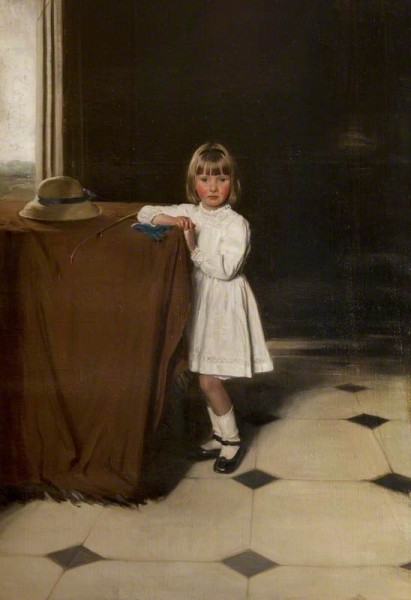
Much of the humour lies in the yawning gap between what the solitary child observes and hears and the verbal veneer applied by the grown-ups who use words to disguise reality as much as to describe it.
No wonder that in her dealings with the adult world she prefers to recite poetry assiduously learnt by heart and carefully rehearsed. As little Martha Freke perceives it, conversation is no more than a series of pitfalls waiting to be fallen into. It is too easy inadvertently to say the wrong thing, sometimes repeating in good faith but at the wrong time and in the wrong company comments she has overheard. A single word misunderstood, she discovers, can prove disastrous. Trying out the word ‘adultery’ in the drawing-room, ends in tears. An uncomfortable interview with her school headmistress, who demands the truth as to whether she has told a lie about another pupil to her mother – little wonder the poor girl is confused – ends in expulsion, when Martha stoutly declares, “Of course I told her about the things Edith did. It’s perfectly true. And she knows all about you and Miss Grossmith, too.” She had gloriously misconstrued the doings of the older girl, who had boasted of her acquaintance with a locum doctor. ‘Drawn out’ by her mother on the school-day, she had hoped to please her with her account of Edith Brookes ‘telling us about how she committed adultery with the local demon.’ The talk of the headmistress’s lesbian relationship had been accurately picked up by Martha but not, of course, understood.
Much of the earlier part of the novel is written in the child’s voice, perfectly pitched, her own clear observations often combined with snippets overheard in drawing-rooms and repeated verbatim: “French and drawing were taught by Mademoiselle Perrels, who was really a Boer, and had been taken on at a reduced salary during the Boer War.” The bald facts of the local vicar’s dismissal, as set out by Martha, suggest a multitude of sins: “Mr. Pygott was fined 10s. 6d. for his offence against the realm; but this was not the worst. People began to throw stones at the Vicarage windows, and to write rude remarks on his gate. Then he went away and the bishop sent someone else in his place, a red-faced man with a wife and six children.”
The vicar’s offence has been harbouring an unregistered alien, a deliciously camp (raffiné in the words of one of Mrs Freke’s paying-guests) American, ‘but with hardly a trace of an American accent’, with the unfortunately German-sounding surname, Weber, who seeks sanctuary at Hillview. “You must register me as an alien at once, and I have brought you this beautiful book from the Omega Workshop. The paper is handmade. What colour shall we use?” Cecil Weber is one of a string of PGs, several of whom, including the American, are there to improve their English – ‘Americans … made less progress in English than any other race’.
Foreign languages and those who speak them present fresh perils for Martha, who, at an early age had taken against French, because it involved ‘French conversation’. “And you must never, never say ‘Mikado’ to them”, warns Mrs Freke, when Japanese paying-guests arrive. Martha does her best, but a cultural clash on the subject of spiders is the first of many and they soon leave for the clergymen’s family, “because, in clergyman’s family, you have sewing-parties.” Christine Longford wittily exploits the comic potential of the language barrier. When the conversation becomes embarrassing – “In Corfu, many soldiers eat for first time, eat too quickly bad food, many thousands die. We throw bodies into sea. Smell was terrible” conveys too much information for polite English society – Mrs Freke attempts a deft sideways move. “… is there anything you can’t eat?” she enquires, expecting the usual “oysters” or “nuts”, or simply “no”. The reply, “Oh, yes, in Corfu one must be very careful, especially in hot weather”, forces her to rephrase. Making conversation isn’t straightforward at any age.
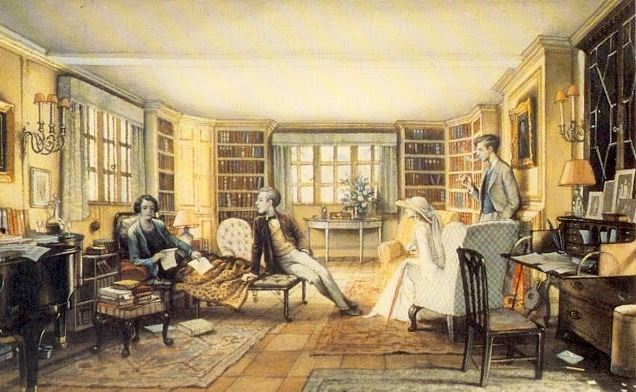
Martha finds it no easier or more comfortable at twenty than she did at the age of ten. Her Oxford career having been summarily curtailed, she sets off for Czecho-Slovakia, to teach English to a family, the irony of the task seemingly lost on her. A Czech phrase-book, acquired in preparation – might conversation learnt by rote be safer, as memorised verses were when she was a child? – proves wanting. “Have you a cough? Have you spat blood? Do you suffer from rheumatism (neuritis, neuralgia, asthma, sciatica)?”. “Don’t get into conversation with anyone on the journey”, warns her mother as she sets out. “I’ll never get into conversation with anyone again,” replies Martha. But she does and he’s perfect. She will learn the Czech language, and until then speak simple, distinct English. “Never again would her tongue run away with her.”
Christine Longford elegantly ties up the threads of a novel in which, outside some oddly verbose Oxford passages, not a word is wasted.
